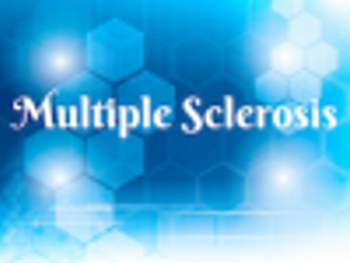
Trastuzumab and hyaluronidase-oysk (Herceptin Hylecta, Genentech) is indicated for subcutaneous administration in certain patients with HER2-positive early and metastatic breast cancer.

Trastuzumab and hyaluronidase-oysk (Herceptin Hylecta, Genentech) is indicated for subcutaneous administration in certain patients with HER2-positive early and metastatic breast cancer.

Trastuzumab and hyaluronidase-oysk (Herceptin Hylecta, Genentech) is indicated for subcutaneous administration in certain patients with HER2-positive early and metastatic breast cancer.

Approved by the FDA in July 2018, Perseris is the first once-monthly, subcutaneous risperidone-containing, long-acting injectable available in the United States.

A recent study identified genetic changes in e-cigarette users similar to those seen in cigarette smokers.

New research supports the use of direct-acting antiviral therapy for all individuals with chronic hepatitis C infection.

Polypharmacy can contribute to a higher risk of health problems, such as drug interactions and adverse effects.

Seladelpar would be indicated for patients with primary biliary cholangitis in combination with ursodeoxycholic acid (UDCA) who have an inadequate response to UDCA or as a monotherapy in adults unable to tolerate UDCA.

The New Drug Application for upadacitinib is supported by data from the phase 3 SELECT trial program evaluating patients with moderate-to-severe rheumatoid arthritis.

The FDA has approved the Biologics License Application for Novo Nordisk’s long-acting factor VIII replacement treatment for adults and children with hemophilia A.

Officials with the FDA have granted approval to Merck’s pembrolizumab (Keytruda) for the adjuvant treatment of melanoma with involvement of lymph node(s) following complete resection.

Pembrolizumab (Keytruda) plus axitinib (Inlyta) was evaluated in a clinical trial of patients with clear-cell metastatic renal cell carcinoma.

Blocking the interaction between interleukin-33 and regulatory T cells may serve as a new therapeutic target for cancers associated with chronic inflammatory diseases.

MDNA55 prolonged survival in IL4R-positive patients with recurrent glioblastoma in a phase 2b clinical trial.

The sBLA is based on data showing significant improvement in overall survival and progression-free survival in patients with advanced renal cell carcinoma.

Data from an analysis of multiple phase 3 studies highlight improvements in mobility, self-care, and usual activities for patients with moderate-to-severe psoriasis taking secukinumab (Cosentyx).

The trial evaluated margetuximab compared with trastuzumab, in combination with chemotherapy, for the treatment of HER 2-positive breast cancer.

African Americans are disproportionately affected by HIV infection in the United States.

An FDA program is seeking to facilitate better quality drug manufacturing through recognized consensus standards.

Phase 3 trial evaluating isatuximab in combination with standard of care met the primary endpoint of prolonging progression-free survival.

If approved, apalutamide (Erleada) plus androgen deprivation therapy would offer an additional treatment option for patients with metastatic castration-sensitive prostate cancer.

Biologic therapy used to treat severe psoriasis found to improve coronary artery plaque burden.

Daratumumab was first approved in November 2015 as the first and only CD38-directed antibody for the treatment of patients with multiple myeloma who have received at least 3 prior lines of therapy, including a proteasome inhibitor (PI) and an immunomodulatory agent, or who are double refractory to both.

The new approval allows for daratumumab (Darzalex) to be administered as a split infusion over 2 consecutive days.

Zogenix is seeking approval for its low-dose fenfluramine therapy, ZX008 (Fintepla), for the treatment of seizures associated with Dravet syndrome.

The supplemental Biologics License Application was filed based on positive overall survival data from a phase 3 clinical trial for pembrolizumab in the treatment of recurrent or metastatic head and neck squamous cell carcinoma.

There are currently no FDA-approved therapies for the prevention or treatment of acute graft-versus-host disease.

The study is the longest observation to date of patients with advanced Merkel cell carcinoma receiving first-line pembrolizumab.

Under the rule, prescription rebates may be passed directly to patients at the pharmacy counter, effectively creating a new safe harbor designed for price reductions at the point of sale.

Ado-trastuzumab emtansine (Kadcyla) is currently approved for the treatment of patients with HER-2 positive metastatic breast cancer who previously received trastuzumab and a taxane.

The proposed rule aims to encourage drug manufacturers to pass discounts directly to patients and improve transparency in the market.